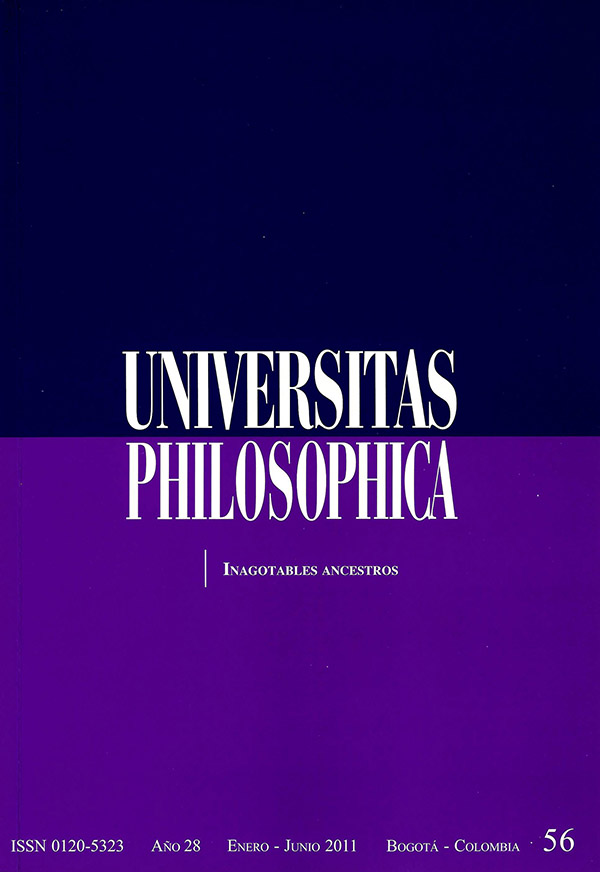Resumen
Cruentas confrontaciones y desastres naturales de la última década de este siglo, acontecidos especialmente en Colombia, dan poco lugar al optimismo. ¿Obedece este pesimismo al drama de las circunstancias, o a motivos más profundos, y cuál ha sido su consecuencia más nefasta? Este ensayo intenta responder estas preguntas a partir de la sentencia más antigua del pensamiento occidental, la del filósofo milesio Anaximandro: “Pagan [las cosas] justa reparación unas a otras por las injusticias que se han cometido entre ellas según la ordenación del tiempo”. Con base en las interpretaciones de Nietzsche y Heidegger sobre esta sentencia, se muestra cómo: (i) ésta se halla en el origen del proyecto nihilista de la tradición occidental; (ii) nos permite comprender por qué asistimos a una época fundada sobre el dominio de “la totalidad de la tierra y de la atmósfera” y, (iii) nos sugiere tres lecturas diferentes del clamor actual por la justicia y la reparación: o bien, desde una esfera moralista que vincula lo axiológico y lo ontológico (metafísica); o, a partir de la primacía otorgada al “acuerdo y la atención mutua (en la reparación) del des-acuerdo (fin de la metafísica)”; o, finalmente, desde una órbita que afirma radicalmente la vida (más allá de la metafísica).
Esta revista científica se encuentra registrada bajo la licencia Creative Commons Reconocimiento 4.0 Internacional. Por lo tanto, esta obra se puede reproducir, distribuir y comunicar públicamente en formato digital, siempre que se reconozca el nombre de los autores y a la Pontificia Universidad Javeriana. Se permite citar, adaptar, transformar, autoarchivar, republicar y crear a partir del material, para cualquier finalidad (incluso comercial), siempre que se reconozca adecuadamente la autoría, se proporcione un enlace a la obra original y se indique si se han realizado cambios. La Pontificia Universidad Javeriana no retiene los derechos sobre las obras publicadas y los contenidos son responsabilidad exclusiva de los autores, quienes conservan sus derechos morales, intelectuales, de privacidad y publicidad.
El aval sobre la intervención de la obra (revisión, corrección de estilo, traducción, diagramación) y su posterior divulgación se otorga mediante una licencia de uso y no a través de una cesión de derechos, lo que representa que la revista y la Pontificia Universidad Javeriana se eximen de cualquier responsabilidad que se pueda derivar de una mala práctica ética por parte de los autores. En consecuencia de la protección brindada por la licencia de uso, la revista no se encuentra en la obligación de publicar retractaciones o modificar la información ya publicada, a no ser que la errata surja del proceso de gestión editorial. La publicación de contenidos en esta revista no representa regalías para los contribuyentes.


